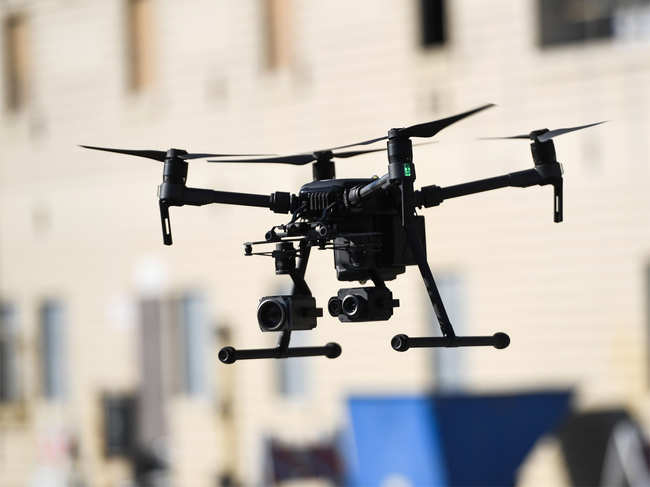 AFP
AFPThe permission was granted by the Directorate General of Civil Aviation (DGCA) and ministry of civil aviation. The ministry said in a notification dated April 29 that it had granted the state a conditional exemption from the UAS (Unmanned Aircraft System) Rules, 2021 for conducting “experimental delivery of vaccines using drones within visual line of sight (VLOS) range.”
According to the notification, the state government had written to the ministry seeking the necessary exemption on March 9. The civil aviation regulator signed off on the approval on April 26. The trial will assist in “assessing conditions such as population, degree of isolation, geography etc to identify regions that specifically require drone deliveries,” the government said in a statement.
The Indian Council of Medical Research had been granted a similar permission earlier for conducting a feasibility study of using drones to deliver Covid vaccines in collaboration with IIT Kanpur.
The approvals come at a time when India is looking to ramp up its Covid-19 vaccination programme, as cases continue to surge across the country.
Discover the stories of your interest

The government said the intention behind granting the permissions was for “faster vaccine delivery and improved healthcare access”.
Under India’s rules for drones, visual line of sight is considered to be a distance of just 450 metres in conditions when minimum ground visibility is 5 kilometres. The country does not yet have a policy to allow drone flights beyond visual line of sight, commonly referred to as BVLOS.
















 Get Unlimited Access to The Economic Times
Get Unlimited Access to The Economic Times
